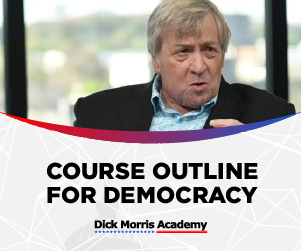The Meaning Of Scott Walker’s Win
“If the single man plant himself indomitably on his instincts, and there abide, the huge world will come round to him.” — Ralph Waldo Emerson.
Great Scotts! Just as Scott Brown’s 2010 victory in Massachusetts foretold the Republican rout later that year, so Scott Walker’s win is but a foretaste of the November election’s likely result. Polls come and go. But when a Republican governor, in a Democratic state that Obama carried by 14 points in 2008, wins by seven points (Walker 53% – Barrett 46%), it shows how overwhelming our victory later this year will be. Add to these facts the high turnout in Wisconsin (over 60 percent, compared with less than 50% in 2010) and the handwriting is clearly on the wall for Obama.
But the real meaning of the Walker victory goes far beyond its obvious role as a predictor of the fall elections. It marks the same kind of catalyst for a downward decline in state and local public employee unions that the air traffic controllers’ strike in the 80s signaled for federal and private sector unions in general. It is the beginning of the end of their reign of power – or terror – over our states and localities.
While only 7% of the private sector labor force is unionized, 41% of state and local government employees are. A majority of union members are now public employees. After foreign competition has decimated private sector unions, the labor movement has found new power in using it leverage over complicit legislators to prey on helpless taxpayers.
But, in Wisconsin, Walker flung down the gauntlet to public employee unions and they accepted the challenge only to go down to a total defeat. Their power will never be the same. Already, the National Education Association (NEA) has experienced a 150,000 decline in its 3.2 million memberships this year and expects another 200,000 falloff in the next few months – more than a ten percent drop. As states follow Wisconsin’s example and stop automatically deducting union dues from their employee’s paychecks, the funds available to unions will continue to drop – and with it will go much of their political power.
But even the fall of the power of public employee unions fails to capture the full extent of the impact of the Walker victory.
Its most important impact is on America’s schools. By elbowing teacher unions aside and permitting local school boards to abolish teacher tenure and insist on merit pay and school choice, the Walker reforms open the door to a vast and rapid improvement in educational quality throughout the nation. No other education reforms have worked. Now we have no choice but to insist on competition at every level of our educational establishment to improve the product. Teachers must compete for jobs and higher pay even as their schools compete for students. It is the only way we have left that can raise student performance.
The sun is shining and Walker won!






